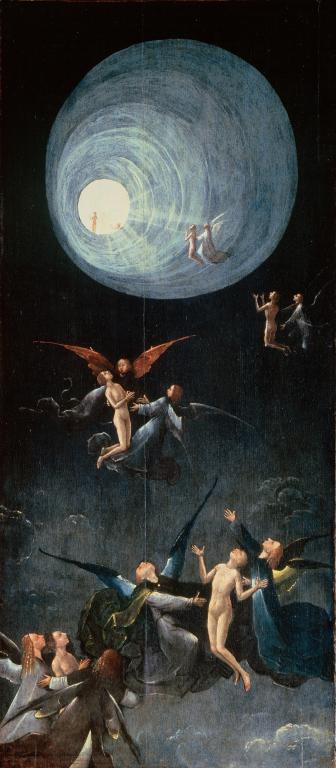
I share with you here some additional passages that I recently marked while reading John Burke, Imagine Heaven: Near-Death Experiences, God’s Promises, and the Exhilarating Future That Awaits You (Grand Rapids, MI: Baker Books, 2015).
The first three concern the so-called “being of light,” famliar to anybody who has read much about near-death experiences:
I went through this dark, black vacuum at super speed. You could compare it to a tunnel. . . . I saw a bright light, and on my way there I heard beautiful music and I saw colors I’d never seen before. [The light] was of a kind that I’d never seen before and that differs from any other kind such as sunlight. It was white and extremely bright, and yet you could easily look at it. It’s the pinnacle of everything there is. Of energy, of love especially, of warmth, of beauty, I was immersed in a feeling of total love. . . .
From the moment the light spoke to me, I felt really good — secure and loved. The love which came from it is just unimaginable, indescribable. It was a fun person to be with! And it had a sense of humor, too — definitely! I never wanted to leave the presense of this being. (Steve Miller, cited at 149-150)
It knew me deeply and overflowed with qualities that all my life I’ve always associated with human beings, and human beings alone: warmth, compassion, pathos . . . even irony and humor. (Dr. Eben Alexander, cited at 151)
[Raymond] Moody points out that, of those who saw this light, “not one person has expressed any doubt whatsoever that it was a being, a being of light. Not only that, it is a personal being. It has a very definite personality. The love and the warmth which emanate from this being to the dying person are utterly beyond words, and he feels completely surrounded by it and taken up in it, completely at ease and accepted in the presence of this being.” (149)
And then the famous “life review”:
My whole life so far appeared to be placed before me in a kind of panoramic, three-dimensional review, and each event seemed to be accompanied by an awareness of good and evil or by an insight into its cause and effect. Throughout, I not only saw everything from my own point of view, but also I knew the thoughts of everybody who’d been involved in these events. . . . And throughout, the review stressed the importance of love. (Steve Miller, cited at 150)










